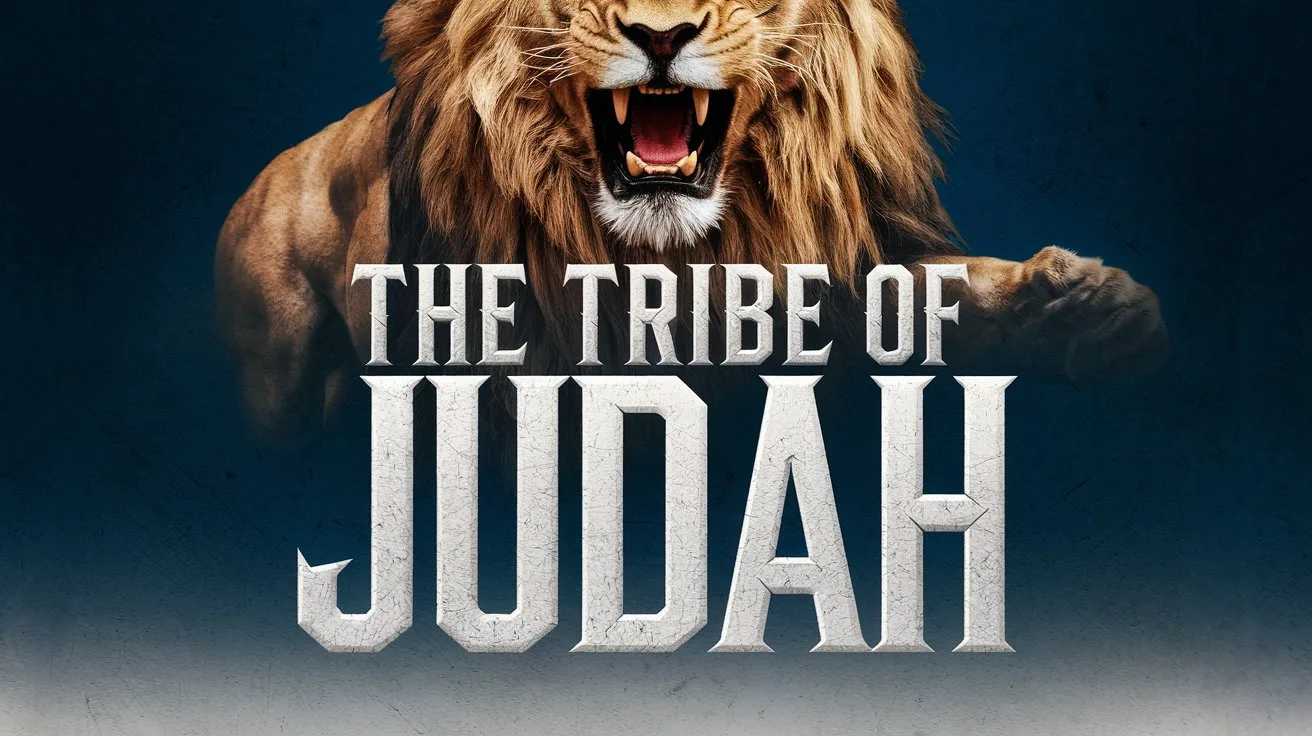Judah was the fourth son of Jacob and Leah (Genesis 29:35). His name means “praise,” and he quickly became one of the most prominent figures among Jacob’s twelve sons. Though not the firstborn, Judah’s leadership and influence were evident early on. He was the one who convinced his brothers not to kill Joseph but to sell him instead (Genesis 37:26-27). Later, he played a key role in protecting his younger brother Benjamin and interceding for him before Joseph in Egypt (Genesis 44:18-34).
Because of his character growth and leadership, Jacob prophesied a special blessing over Judah before his death:
“Judah, you are he whom your brothers shall praise;
Your hand shall be on the neck of your enemies;
Your father’s children shall bow down before you.
Judah is a lion’s whelp;
From the prey, my son, you have gone up.
He bows down, he lies down as a lion;
And as a lion, who shall rouse him?
The scepter shall not depart from Judah,
Nor a lawgiver from between his feet,
Until Shiloh comes;
And to Him shall be the obedience of the people.” (Genesis 49:8-10)
This prophecy established Judah as the tribe through which kingship and ultimately the Messiah would come.
Entering the Promised Land
When the Israelites entered the Promised Land, the tribe of Judah received a large and significant portion of land in the south (Joshua 15:1-12). Their territory included key cities like Hebron, Bethlehem, and later, Jerusalem.
The land of Judah was fertile, well-defended by natural borders, and strategically located. Because of this, Judah remained strong and independent; even when other tribes struggled.
The Kingdom Separation
After King Solomon’s reign, the united kingdom of Israel split in two because of Solomon’s sin and his son Rehoboam’s foolish leadership (1 Kings 12:16-24). The ten northern tribes broke away to form the kingdom of Israel under Jeroboam, while the southern kingdom, known as Judah, remained loyal to the Davidic dynasty and the temple in Jerusalem.
Judah became the center of worship and political power, ruled by descendants of David. Although the kingdom of Judah also fell into sin, it had periods of revival under kings like Asa, Jehoshaphat, Hezekiah, and Josiah.
However, in 586 B.C., Judah was conquered by Babylon, and the people were taken into exile (2 Kings 25:8-12). Unlike the northern kingdom of Israel, which was scattered and lost among the nations, Judah maintained its identity. After 70 years, many of them returned to rebuild Jerusalem and the temple under leaders like Ezra and Nehemiah (Ezra 1:1-4, Nehemiah 2:17-18).
Why Is Jesus Called the Lion of Judah?
Jesus is called the Lion of Judah because He is the ultimate fulfillment of Jacob’s prophecy in Genesis 49:8-10. The title is explicitly mentioned in Revelation 5:5:
“But one of the elders said to me, ‘Do not weep. Behold, the Lion of the tribe of Judah, the Root of David, has prevailed to open the scroll and to loose its seven seals.’” (Revelation 5:5)
Jesus is the rightful King from the line of David, fulfilling the promise that the scepter would never depart from Judah. His victory over sin, death, and Satan demons/”>demonstrates His power and authority as the conquering Lion. He is both the suffering Lamb (Isaiah 53, John 1:29) and the triumphant Lion who will rule forever (Revelation 19:11-16).
Judah, A Tribe of Leadership
The tribe of Judah was distinct because of its connection to kingship, leadership, and ultimately the Messiah. While the tribe of Levi was set apart for priestly duties (Numbers 3:5-10), Judah was chosen to lead Israel politically and spiritually.
Judah Was a Leading Tribe
(Even during Israel’s wilderness journey, Judah led the march (Numbers 2:9).)
Davidic Kingship (God made a covenant with David that his throne would be established forever (2 Samuel 7:16), a promise fulfilled in Jesus Christ.)
Messianic Fulfillment (The Messiah had to come from Judah, as prophesied in multiple places (Isaiah 11:1, Micah 5:2, Matthew 1:1-2).)
Jerusalem and the Temple (Though the Levites were the priests, the temple was located in Jerusalem, within Judah’s territory, making Judah the spiritual and political heart of Israel.)
My Final Thoughts
The tribe of Judah was set apart for leadership, not because of power or might, but because of God’s choice. It was through Judah that the kings of Israel would rule, and ultimately, through Judah came Jesus Christ, the King of Kings and Lord of Lords.
Even when the kingdom of Judah fell into sin and was exiled, God’s promises remained: the Messiah would still come from Judah’s line, and He would reign forever. Today, we can take comfort in knowing that Jesus, the Lion of Judah, has conquered sin and death and reigns with ultimate authority. One day, He will return in power and glory, establishing His eternal kingdom.
Until then, may we live under His power and authority as our King, praising Him just as Judah was called to do.





 Get the book that teaches you how to evangelize and disarm doctrines from every single major cult group today.
Get the book that teaches you how to evangelize and disarm doctrines from every single major cult group today.